Your search “Keep%20the%20death%20penalty%abolished%20in%20the%20ePhilippfines%20e%20e%20e%20e%20e%20e%20e%20e%20e%20e/page/www.humanrights.asia/resources/report/2011/AHRC-sur-008-2011/act_download/file ”
Document(s)
Activity Report 2015
By World Coalition Against the Death Penalty, on 1 January 2016
2016
NGO report
frMore details Download [ pdf - 1253 Ko ]
Executions worldwide increased dramatically in number in 2015, dueprincipally to sharp increases in Pakistan, Iran and Saudi Arabia. At thesame time, this Activity Report for 2015 also reflects real progress toward abolition in the Americas and sub-Saharan Africa. Thesteady, consistent work of educating and encouraging accession toregional and international instruments to end the death penalty, is anincremental strategy that continues to bear fruit.
- Document type NGO report
- Themes list World Coalition Against the Death Penalty,
- Available languages Rapport D'Activités 2015
Document(s)
What Strategies Towards the Abolition of the Death Penalty in West Africa? : Report of the Symposium in Dakar
By FIACAT, on 1 January 2012
2012
NGO report
More details See the document
The regional seminar on the abolition of the death penalty in West Africa took place inDakar (Senegal) from 12-14 November 2012. This workshop brought together nineteenACAT members affiliated to FIACAT. It was therefore possible for each of the nine West Afri-can ACATs1to be represented by two participants (with the exception of Senegal, whichwas represented by three members).Participants at the workshop attended lectures and had the opportunity to developnational action plans for achieving abolition in their countries. According to feedbackreceived at the end of the seminar, attendees found the practical nature of the lectures,and the opportunity to network with other ACATs and learn from the experiences of otherparticipants, particularly beneficial.This document is a collection of all of the lectures from the Dakar seminar, as well asinternational and African texts relating to the death penalty. It is intended as a practicaltool to assist us as we progress towards abolition in Sub-Saharan Africa.
- Document type NGO report
- Themes list Trend Towards Abolition, Member organizations, Country/Regional profiles,
Document(s)
Report : Third World Congress Against the Death Penalty
By Ensemble contre la peine de mort (ECPM), on 1 January 2008
2008
NGO report
frMore details See the document
Participants in the Third World Congress Against the Death Penaltyin Paris have repeated again and again that the universal abo-lition of the death penalty is underway. The work carried outin Paris 2007 has clearly shown it: an irreversible downwardtrend in the number of death sentences and executions is vis-ible worldwide. Above all an increasing number of nations haveabandoned this useless and cruel practice.
- Document type NGO report
- Themes list Trend Towards Abolition, World Coalition Against the Death Penalty,
- Available languages Actes : 3e Congrès mondial contre la peine de mort
Document(s)
Bahrain The Death Penalty Joint Stakeholder Report for the United Nations Universal Periodic Review
By The Advocates for Human Rights, on 1 January 2017
2017
NGO report
More details See the document
- Document type NGO report
- Themes list International law, Member organizations, Death Penalty,
Document(s)
Barbados: Death Penalty Stakeholder Report for the Universal Periodic Review
By The Advocates for Human Rights, on 1 January 2017
NGO report
More details See the document
- Document type NGO report
- Themes list International law, Member organizations, Death Penalty,
Document(s)
The Bahamas: Death Penalty Joint Stakeholder Report for the United Nations Universal Periodic Review
By The Advocates for Human Rights, on 1 January 2017
NGO report
More details See the document
- Document type NGO report
- Themes list International law, Member organizations, Death Penalty,
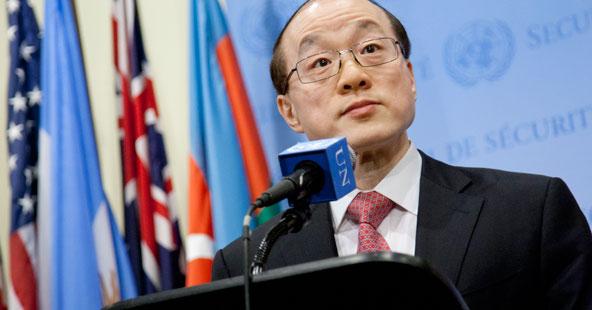
Article(s)
How far is China ready to reduce its use of the death penalty?
By Aurélie Plaçais, on 25 November 2013
The number one executioner in the world recently made national and international commitments to continuing to reform its death penalty, but how far is China really ready to go?
2013
China
Clemency
Drug Offenses
Terrorism
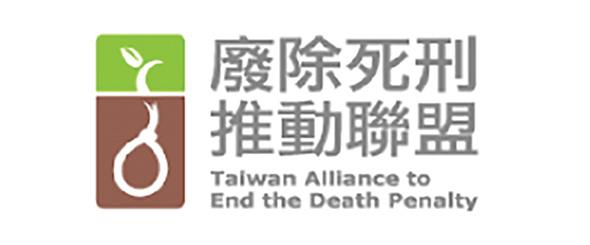
Article(s)
TAEDP Withdraws from Ministry of Justice’s Task Force to Research the Gradual Abolition of the Death Penalty
By TAEDP, on 30 April 2020
TAEDP Press Release, April 2, 2020The Taiwan Alliance to End the Death Penalty made this decision after the Ministry of Justice, in total disregard for the rule of law, arbitrarily and illegally executed a death row inmate on April 1, 2020.
2020
Taiwan
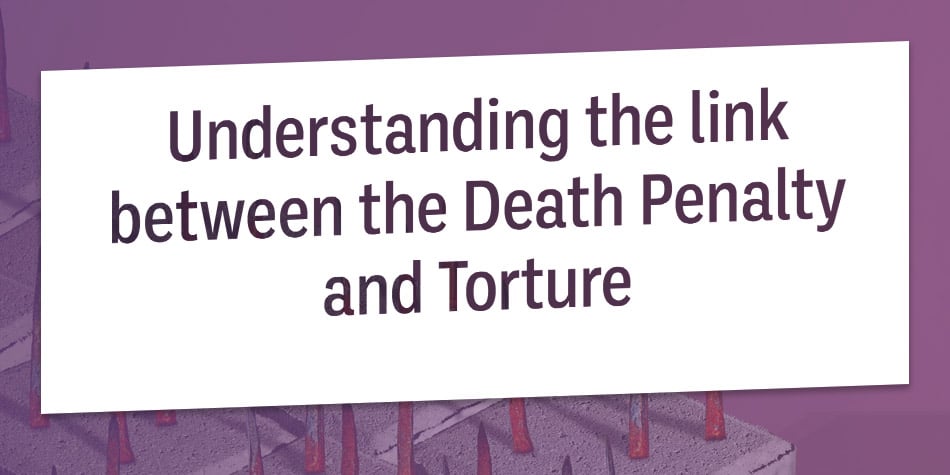
Article(s)
International Day in Support of Victims of Torture: Understanding the link between the Death Penalty and Torture
By Wendy Adouki, on 26 June 2023
Today, 26th June 2023, the world is commemorating the International Day in Support of Victims of Torture (International Day). Started in 1987, this International Day began when the United Nations Convention Against Torture and Other Cruel, Inhuman or Degrading Treatment or Punishment (UN Convention Against Torture) came into force; a crucial legal text to combat […]
2023
Cruel, Inhuman and Degrading Treatment and Punishment
Death Row Conditions
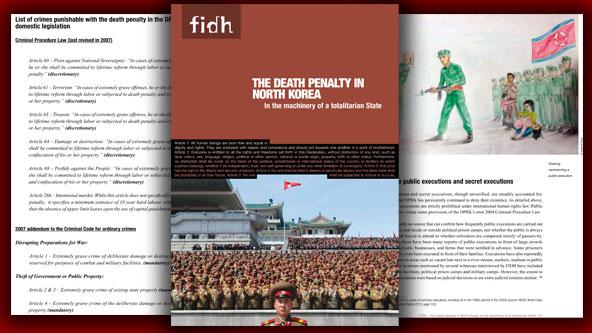
Article(s)
Death penalty still used to make examples in North Korea
By Thomas Hubert, on 19 May 2013
An investigation of testimonies from North Korean refugees by FIDH describes the political use of widespread executions – although their number remains secret.
2013
Cruel, Inhuman and Degrading Treatment and Punishment
Democratic People's Republic of Korea
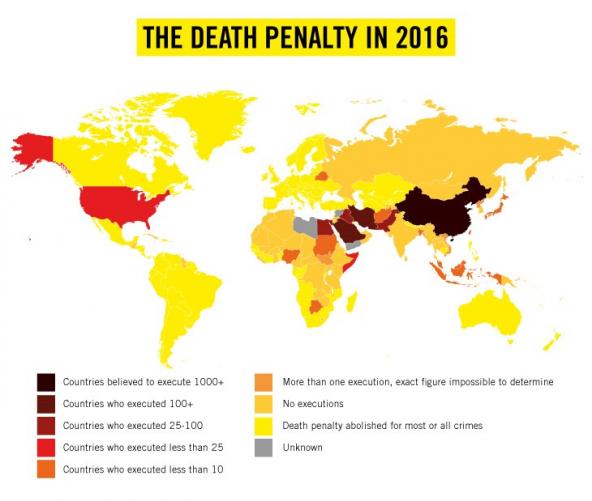
Article(s)
Death Sentences and Executions in 2016
By Amnesty International, on 11 April 2017
Amnesty International published its 2016 global review of the death penalty on Tuesday, April 11th 2017.Excluding China, states around the world executed 1,032 people in 2016. China executed more than all other countries in the world put together, while the USA reached a historic low in its use of the death penalty in 2016.
2017
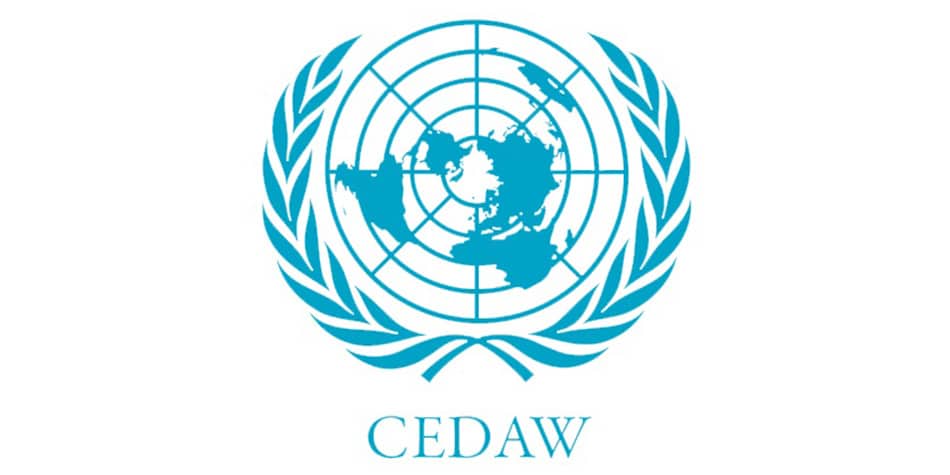
Article(s)
Abolitionist advocacy at the 88th CEDAW Session
on 7 June 2024
The 88th session of the Committee on the Elimination of Discrimination Against Women (CEDAW) was held in Geneva, Switzerland, from May 13 to 31, 2024.
2024
Brazil
Estonia
Gender
Kuwait
Malaysia
Montenegro
Republic of Korea
Rwanda
Singapore
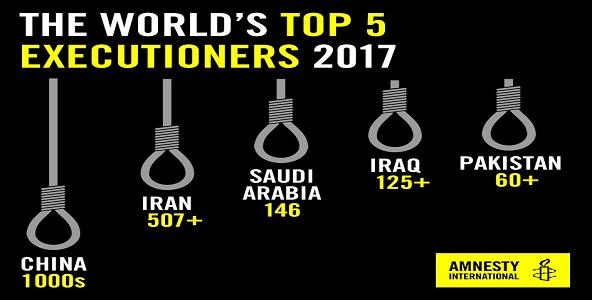
Article(s)
Death Sentences and Executions in 2017
By Amnesty International, on 12 April 2018
Amnesty International published its international global review of the death penalty on Tuesday, 12th April 2018.At least 993 executions in 23 countries in 2017 were recorded, down by 4% from 2016 (1,032 executions) and 39% from 2015 (when the organization reported 1,634 executions, the highest number since 1989). China remained the world’s top executioner, but excluding China, 84% of all reported executions took place in just four countries – Iran, Saudi Arabia, Iraq and Pakistan.
2018
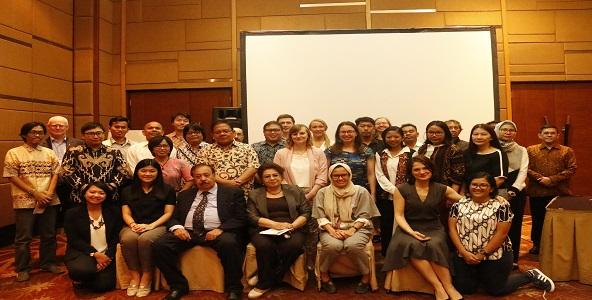
Article(s)
Dialogue on the death penalty during the 20th anniversary of the Reformasi
By Clémentine Etienne, on 27 June 2018
20 years after the end of the dictatorship, Indonesia is going through a period of legal changes and transition. What impact can abolitionist associations and NGOs working on the ground have in encouraging the actions of legal counsellors and civil society?
2018
Indonesia
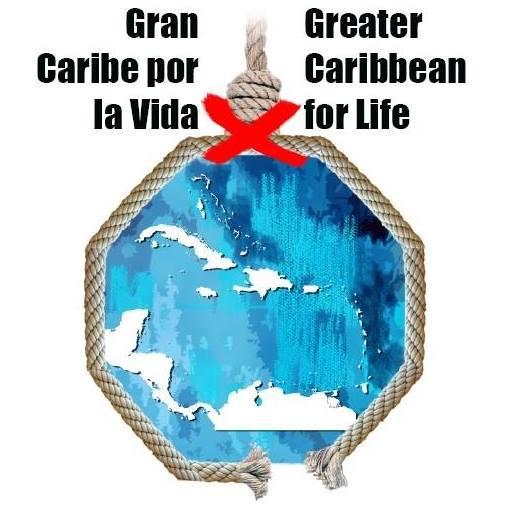
Article(s)
10 years with no hanging in the Caribbean
By Greater Caribbean for Life, on 19 December 2018
The Greater Caribbean for Life (GCL) notes that 19 December, 2018 marks the 10th anniversary of the hanging of Charles la Place in St Kitts and Nevis. He was the last person who was hanged in the English-speaking Caribbean.
2018

Article(s)
How Likely Is the Return of the Death Penalty in Israel?
By World Coalition against the Death Penalty, on 22 May 2023
Early 2023, the newly elected government of Israel announced an ensemble of judicial reforms; including a new bill that would introduce the death penalty for acts of terrorism. As of May 2023, the judicial reforms have been put on hold by the PM Netanyahu. This article takes a historical perspective to recontextualize the issue of […]
2023
Israel
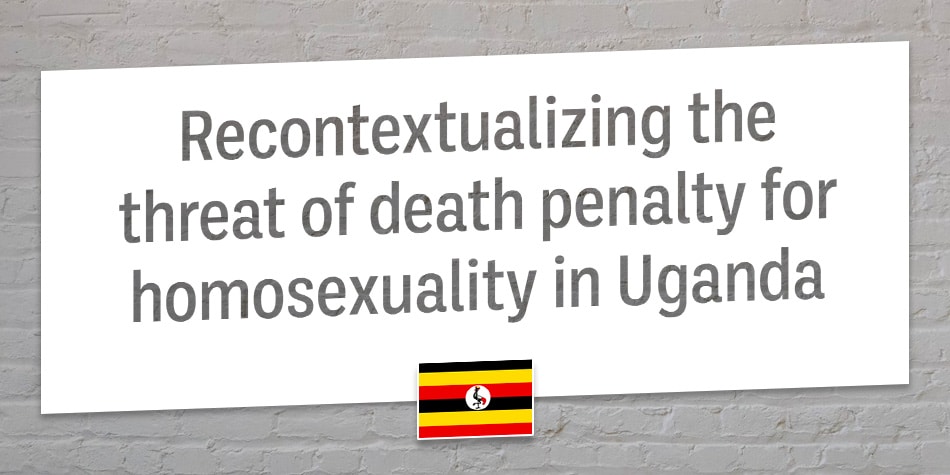
Article(s)
Recontextualizing the threat of death penalty for homosexuality in Uganda
By Méline Szwarcberg, on 2 May 2023
On Tuesday March 21, the Ugandan parliament passed a law that severely criminalizes people who have consensual same-sex relations. At the end of April, the law had still not been validated by the President Museveni. Among a range of harsh penalties, the law would allow the death penalty for the crime of « aggravated homosexuality […]
2023
Gender
Uganda

Article(s)
Sierra Leone abolishes the Death Penalty
By World Coalition Against the Death Penalty , on 2 August 2021
On Friday 23rd July 2021, Sierra Leone’s Parliament unanimously abolished the death penalty by passing the Abolition of the Death Penalty Act.
2021
Public Opinion
Sierra Leone
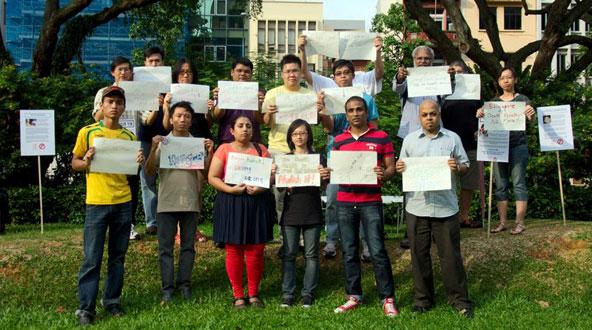
Article(s)
Migrant workers facing capital punishment show need for alternative sentences
By Think Centre, on 26 April 2012
Four Singapore-based organisations denounce the high risk of miscarriage of justice in recent death sentences handed down on poor immigrants and calls for the abolition of the death penalty in the city-state.
2012
Cruel, Inhuman and Degrading Treatment and Punishment
Moratorium
Singapore
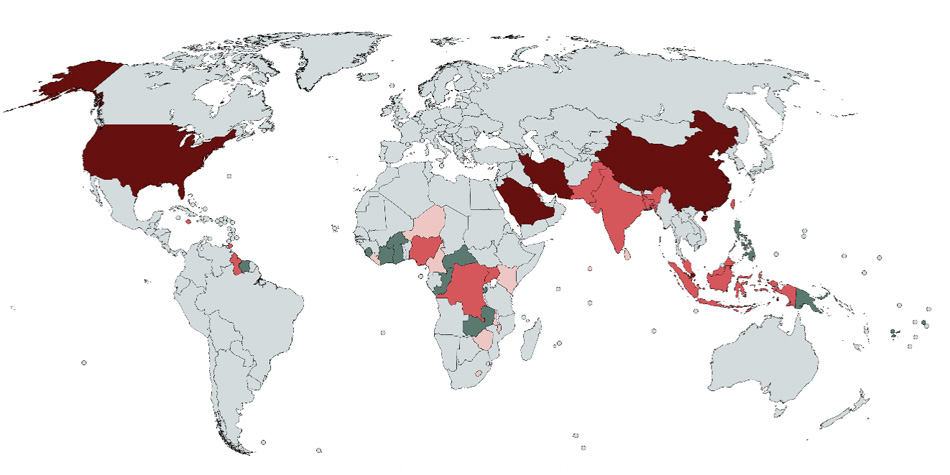
Article(s)
Strengthening the Abolitionist Movement: Launch of the Global Consortium for Death Penalty Abolition
By World coalition against the death penalty, on 12 July 2024
Despite a growing number of countries worldwide joining the abolitionist movement every year, bringing the prospect of universal abolition closer to reality, the death penalty remains a significant human rights concern.
2024
Trend Towards Abolition
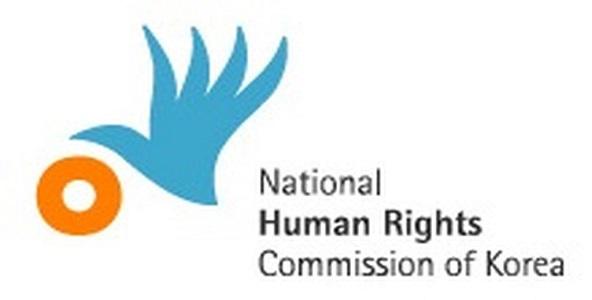
Article(s)
After more than 20 years without executions, a trend toward an official moratorium?
By Clémentine Etienne, on 27 June 2018
On 18 June 2018, the Korean National Human Rights Commission (NHRC) called on the South Korean President to declare an official moratorium on the death penalty to mark the 70th anniversary of the Universal Declaration of Human Rights on December 10.
2018
Republic of Korea
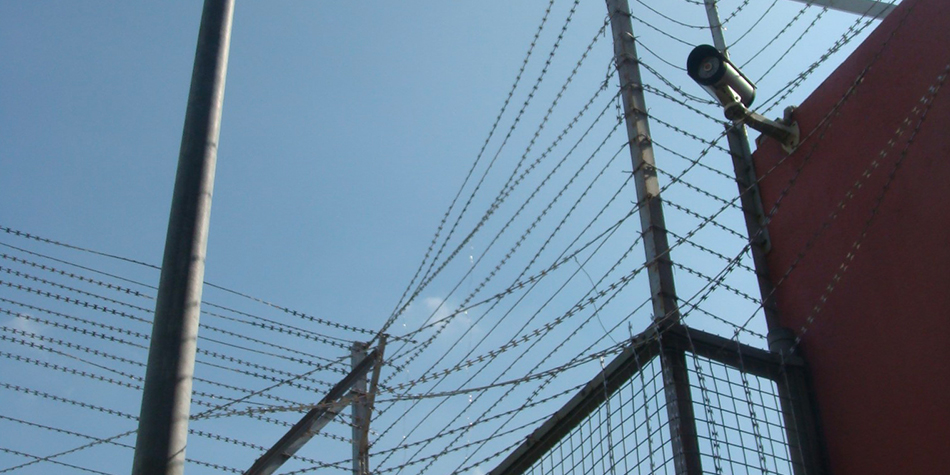
Article(s)
Does one year of “double zero” mean the death penalty has been repealed? How close is Taiwan to abolishing capital punishment?
By Lin Hsin-yi, Executive Director of the Taiwan Alliance to End the Death Penalty, on 28 April 2022
After the end of the last workday of 2021, it became clear that no one would be sentenced to death or executed that year – the first time ever that Taiwan has experienced “double-zero.”
2022
Taiwan
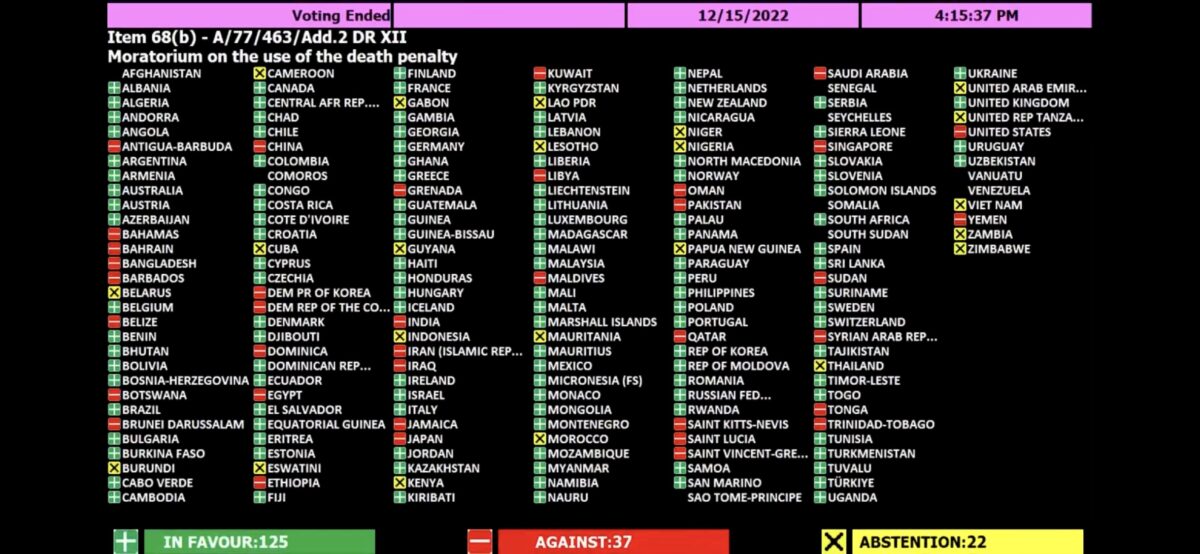
Article(s)
9th Resolution for a moratorium on the death penalty: the trend is growing
By World Coalition Against the Death Penalty, on 20 December 2022
On 15 December 2022, the United Nations General Assembly adopted the 9th resolution for a moratorium on the use of the death penalty with 125 votes in favor (2 more than in 2020), 37 votes against, 22 abstentions and 9 absent.
2022
Moratorium
Trend Towards Abolition

Article(s)
India asked to maintain the moratorium on executions
By Emile Carreau, on 28 July 2011
After a six year moratorium on executions, India’s President Patil has rejected the mercy petition of two Indian nationals despite international outcry to maintain the moratorium.
2011
Cruel, Inhuman and Degrading Treatment and Punishment
Drug Offenses
India
Moratorium
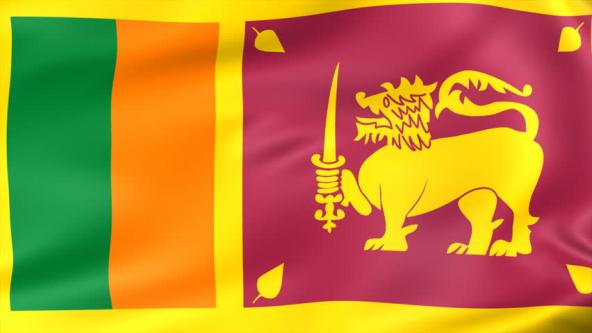
Article(s)
Sri Lanka: the death sentences of 60 prisoners commuted
By Elise Guillot, on 17 February 2017
Good news from Sri Lanka: by decision of the President, the death sentences of 60 prisoners have been commuted.
2017
Sri Lanka
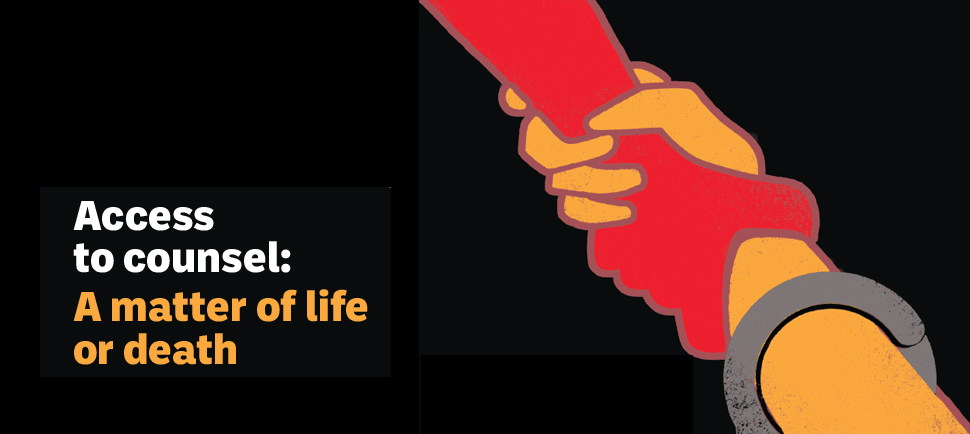
Article(s)
The 18th World Day Against the Death Penalty Highlights the Life-Saving Importance of Effective Legal Representation in Capital Cases
By Gia Tongson, on 18 November 2020
The 18th World Day Against the Death Penalty explored the theme “Access to Counsel: A Matter of Life or Death” in light of the continued execution of individuals who struggle to have adequate support from their lawyers, who consequently also face their own challenges in the judicial system. Having access to qualified and effective representation […]
2020
Australia
Belgium
Canada
Congo
Egypt
Fair Trial
France
Kazakhstan
Philippines
Portugal
Uganda
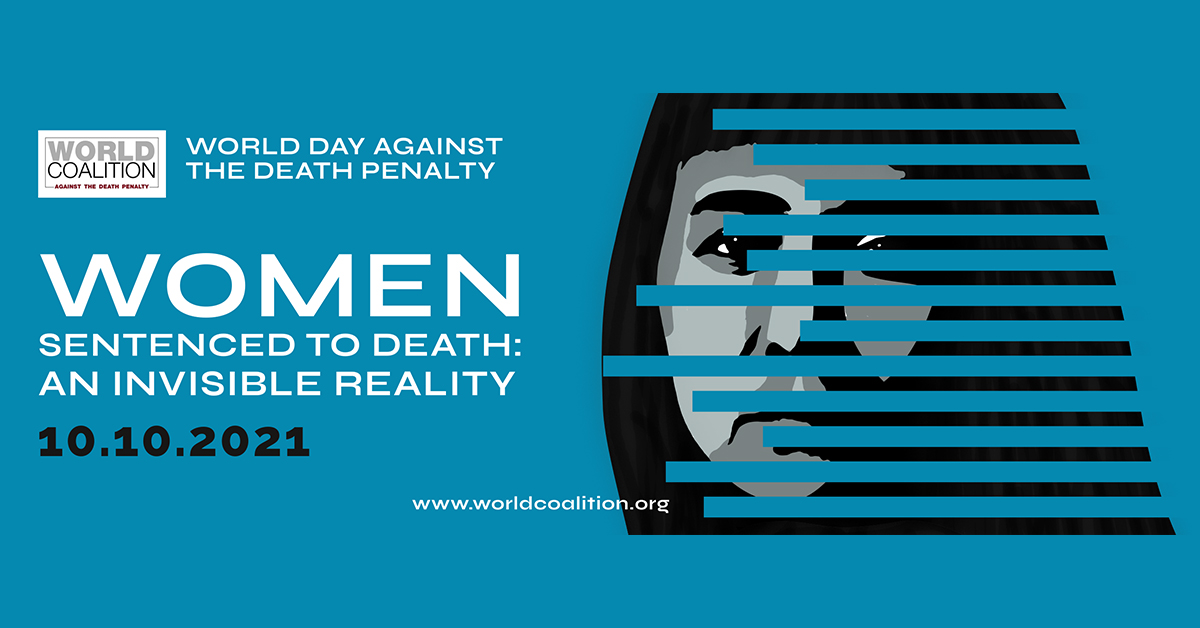
Article(s)
Joint Declaration on the Death Penalty and Women’s Rights
By World Coalition Against the Death Penalty, on 10 October 2021
As we mark the 19th World Day Against the Death Penalty dedicated to women facing capital punishment, who have been sentenced to death, who have been executed or who have been pardoned or found not guilty, the members of the World Coalition Against the Death Penalty and allies of women sentenced to death take this […]
2021
Women
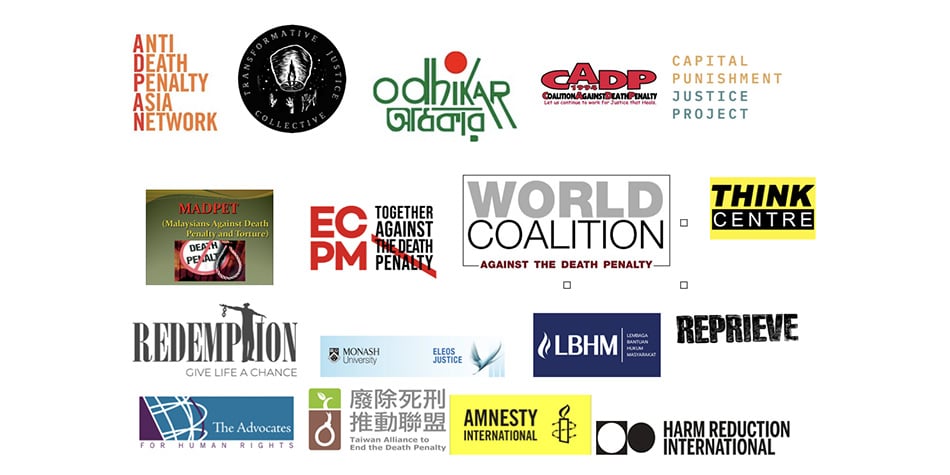
Article(s)
Calling on Singapore to respect international safeguards and halt executions
on 3 May 2024
We are greatly concerned by the news that the Government of Singapore has issued at least five execution notices since 12 April 2024, all cases in relation to drug offending. Transformative Justice Collective, a member of the Anti-Death Penalty Asia Network, reports that in four of these five cases, the execution was stayed at the […]
2024
Drug Offenses
Fair Trial
Legal Representation
Singapore
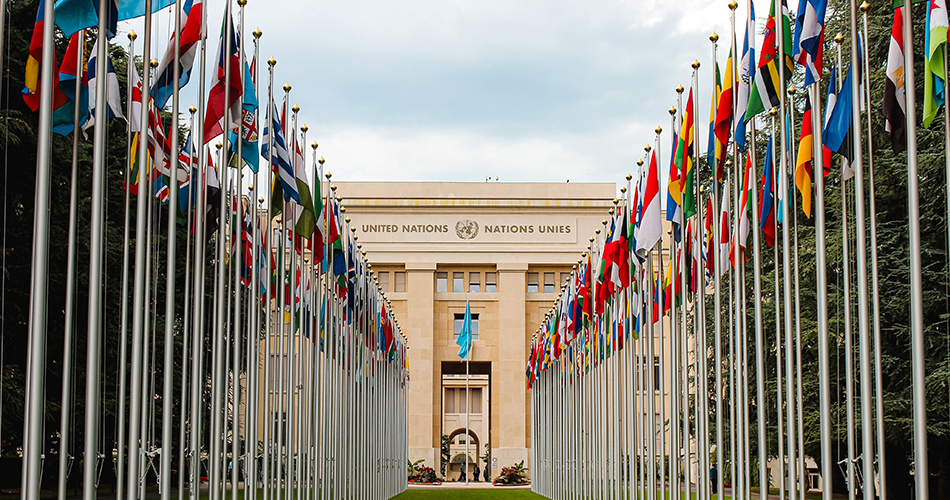
Article(s)
120 UN Member States Support the Moratorium at Committee Vote
By Louis Linel, on 18 November 2020
On 17 November, the Third Committee of the United Nations General Assembly has adopted a draft resolution calling upon UN Member States to observe a moratorium on executions.
2020
Congo
Democratic Republic of the Congo
Djibouti
Eswatini
Guinea
Lebanon
Mexico
Moratorium
Nauru
Philippines
Republic of Korea
Sierra Leone
Switzerland
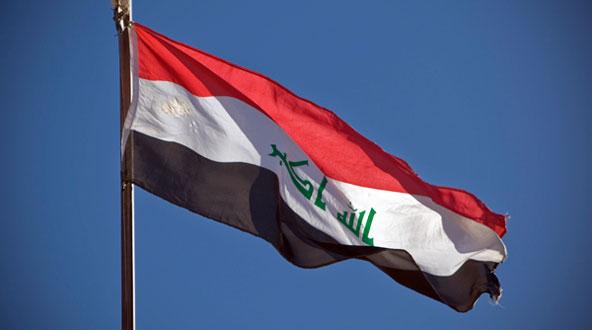
Article(s)
Terrorism is no excuse for unfair trials in Iraq
By Elisa Belotti, on 25 November 2015
Earlier in November, the UN Human Rights Committee released its concluding observations on Iraq’s implementation of the International Covenant on Civil and Political Rights. The Committee and civil society’s representatives specifically dwelled on Iraq’s application of the death penalty.
2015
Fair Trial
Iraq
Iraq
Terrorism
Article(s)
Thai seminars explore religious perspectives on the death penalty
on 4 August 2008
Thai human rights activists led by the Union for Civil Liberty (UCL) organised a series of seminars with religious leaders to raise their awareness and discuss their perspectives on abolition.
2008
Murder Victims' Families
Public Opinion
Thailand
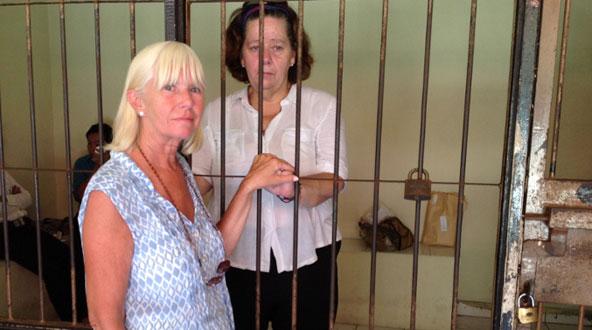
Article(s)
Briton’s death sentence puts Indonesians at risk
By KontraS, on 31 January 2013
The World Coalition’s Indonesian member organization KontraS has raised the international consequences of Lindsay Sandiford’s high-profile capital case in an opinion article published by the Jakarta Globe newspaper, calling on the country to abolish the death penalty.
2013
Drug Offenses
Indonesia
Moratorium

Article(s)
The Commonwealth of Virginia Abolishes the Death Penalty
By Louis Linel, on 25 March 2021
Virginia became the 23rd US State to formally ban capital punishment on 24 March 2021.
2021
United States
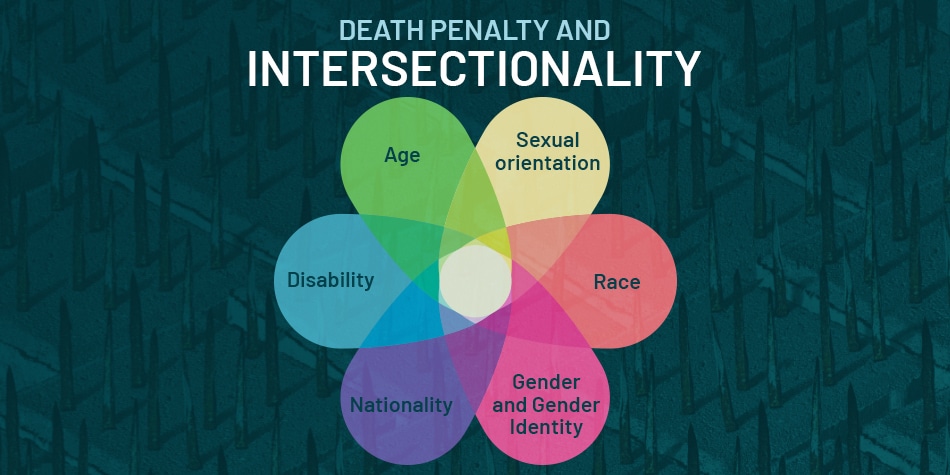
Article(s)
Joint statement on the death penalty and human rights of women and LGBTQIA+ individuals
By World Coalition Against the Death Penalty, on 10 October 2022
20th World Day against the Death Penalty On this 20th anniversary of the World Day Against the Death Penalty dedicated to the link between torture and the use of the death penalty and in continuation of the 2021 World Day Against the Death Penalty dedicated to women facing capital punishment, sentenced to death, executed, pardoned […]
2022
Cruel, Inhuman and Degrading Treatment and Punishment
Death Row Conditions
Fair Trial
Women
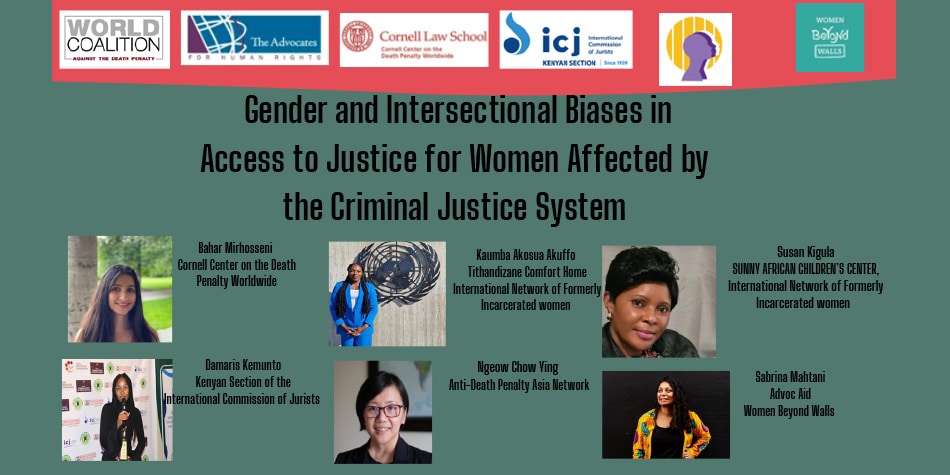
Article(s)
Access to justice and discrimination: the World Coalition organizes a briefing for the UN Working Group on Discrimination against Women and Girls
By World Coalition Against the Death Penalty, on 26 September 2024
2024
Gender
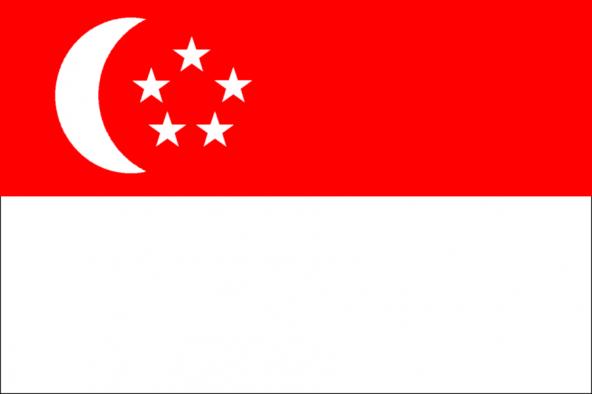
Article(s)
Singapore: the government threatens abolitionists and human rights defenders.
By Thalia Gerzso, on 24 January 2018
Despite a death penalty reform in 2013, Singapore continues to impose the mandatory death penalty in a significant number of cases while repressing abolitionists and human rights defenders.
2018
Singapore

Article(s)
Abolition of the death penalty at the United Nations Human Rights Council 54th session
on 30 August 2024
The United Nations Human Rights Council met for its 54th Regular Session from September 11 to October 13, 2023. If you missed it, here is what happened regarding the abolition of the death penalty!
2024
Trend Towards Abolition
Document(s)
Bloodshed and Lies: Mohammed bin Salman’s Kingdom of Executions
By Reprieve UK and European Saudi Organization for Human Rights, on 31 January 2023
2023
NGO report
Saudi Arabia
arMore details See the document
Saudi Arabia is a flagrant abuser of the right to life. Between 2010 and 2021, Saudi Arabia executed at least 1243 people, making it one of the most rampant executioners in the world. As of December 2022, the Saudi regime had executed at least a further 147 people in 2022, including 81 people in one day in a mass execution on 12 March 2022.
Saudi Arabia’s use of the death penalty has drastically increased since 2015. This escalation has taken place on the watch of Saudi Arabia’s King Salman, who acceded the throne on 23 January 2015, and his son, Crown Prince and Prime Minister Mohammed bin Salman. The annual rate of executions has almost doubled since King Salman and Mohammed bin Salman came to power in 2015. From 2010-2014 there was an average of 70.8 executions per year. From 2015-2022 there was an average of 129.5 executions per year – a rise of 82%. The six bloodiest years of executions in Saudi Arabia’s recent history have all occurred under the leadership of Mohammed bin Salman and King Salman (2015, 2016, 2017, 2018, 2019 and 2022).
- Document type NGO report
- Countries list Saudi Arabia
- Available languages سفك الدماء والأكاذيب: مملكة إعدام محمد بن سلمان
Document(s)
Death Penalty in Liberia. When will it be abolished?
By FIACAT, on 1 January 2019
2019
Arguments against the death penalty
More details See the document
The FIACAT and ACAT Liberia organized an awareness-raisingworkshop on 17 and 18 September 2019 in Monrovia (Liberia) for 30 participants: Muslim and Christian religious leaders, traditional chiefs, members of civil society organizations, journalists, members of the Independent National Commissionon Human Rights (INCHR) and parliamentarians. This workshop resulted in the production of this publication to raise awareness among opinion leaders on the abolition of the death penalty in Liberia, considering the specific characteristicsand needs of the country.
- Document type Arguments against the death penalty

Article(s)
Call for tenders for an external final evaluation
By World Coalition Against the Death Penalty, on 15 June 2021
External Evaluation of the project “Preventing the risk of resurgence of the death penalty in three abolitionist countries” of 36 months in the Maldives, Philippines and Turkey
2021
Maldives
Philippines
Turkey
Document(s)
Note verbale dated 11 March 2011 from the Permanent Mission of Egypt to the United Nations addressed to the Secretary-General
By United Nations, on 8 September 2020
2020
United Nations report
Afghanistan
Antigua and Barbuda
Bahamas
Bahrain
Bangladesh
Barbados
Botswana
Brunei Darussalam
Central African Republic
Chad
China
Democratic People's Republic of Korea
Democratic Republic of the Congo
Dominica
Egypt
Equatorial Guinea
Eritrea
Eswatini
Ethiopia
Grenada
Guinea
Guyana
Indonesia
Iran (Islamic Republic of)
Iraq
Jamaica
Kuwait
Lao People's Democratic Republic
Libya
Malaysia
Moratorium
Myanmar
Niger
Nigeria
Oman
Pakistan
Papua New Guinea
Qatar
Saint Kitts and Nevis
Saint Lucia
Saint Vincent and the Grenadines
Saudi Arabia
Sierra Leone
Singapore
Solomon Islands
Somalia
Sudan
Syrian Arab Republic
Tonga
Trinidad and Tobago
Uganda
United Arab Emirates
Yemen
Zimbabwe
aresfrruzh-hantMore details See the document
The permanent missions to the United Nations in New York listed below have the honour to refer to General Assembly resolution 65/206, entitled “Moratorium on the use of the death penalty”, which was adopted by the Third Committee on 11 November 2010, and subsequently by the General Assembly on 21 December 2010 by a recorded vote. The permanent missions wish to place on record that they are in persistent objection to any attempt to impose a moratorium on the use of the death penalty or its abolition in contravention of existing stipulations under international law, for the following reasons:
- Document type United Nations report
- Countries list Afghanistan / Antigua and Barbuda / Bahamas / Bahrain / Bangladesh / Barbados / Botswana / Brunei Darussalam / Central African Republic / Chad / China / Democratic People's Republic of Korea / Democratic Republic of the Congo / Dominica / Egypt / Equatorial Guinea / Eritrea / Eswatini / Ethiopia / Grenada / Guinea / Guyana / Indonesia / Iran (Islamic Republic of) / Iraq / Jamaica / Kuwait / Lao People's Democratic Republic / Libya / Malaysia / Myanmar / Niger / Nigeria / Oman / Pakistan / Papua New Guinea / Qatar / Saint Kitts and Nevis / Saint Lucia / Saint Vincent and the Grenadines / Saudi Arabia / Sierra Leone / Singapore / Solomon Islands / Somalia / Sudan / Syrian Arab Republic / Tonga / Trinidad and Tobago / Uganda / United Arab Emirates / Yemen / Zimbabwe
- Themes list Moratorium
- Available languages مذكرة شفوية مؤرخة 11 آذار/مارس 2011 موجَّهة إلى الأمين العام من البعثة الدائمة لمصر لدى الأمم المتحدةNota verbal de fecha 11 de marzo de 2011 dirigida al Secretario General por la Misión Permanente de Egipto ante las Naciones UnidasNote verbale datée du 11 mars 2011, adressée au Secrétaire général par la Mission permanente de l’Égypte auprès de l’Organisation des Nations UniesВербальная нота Постоянного представительства Египта при Организации Объединенных Наций от 11 марта 2011 года на имя Генерального секретаря2011年3月11日埃及常驻联合国代表团给秘书长的普通照会
Document(s)
Ratification Campaign Update 8 – August 2011
By World Coalition Against the Death Penalty, on 8 September 2020
Academic report
frMore details Download [ pdf - 75 Ko ]
This document presents the recent evolution of the campaign. This update will be published every other month to give information about the campaign development (status of ratifications, actions taken by the World Coalition and its members) and suggest taking action in the target countries.
- Document type Academic report
- Themes list International law, Trend Towards Abolition,
- Available languages Evolution de la campagne de ratification 8 - Aout 2011
Document(s)
Leaflet World Day 2011 on the inhumanity of the death penalty
By World Coalition Against the Death Penalty, on 1 January 2011
2011
Campaigning
frMore details Download [ pdf - 105 Ko ]
The International Jurisprudence Factsheet is divided in four topics: 1. The Right to Be Free from Cruel, Inhuman or Degrading Treatment or Punishment 2. Methods of Executions 3. Death Row Conditions 4. Families of the Persons Sentenced to Death. The relevant international entities have been investigated regarding these topics and their conclusions are presented in this factsheet.
- Document type Campaigning
- Themes list Networks,
- Available languages Fiche jurisprudence internationale : "La peine de mort est inhumaine"
Document(s)
World Day 2011 Petition
By World Coalition Against the Death Penalty, on 1 January 2011
Campaigning
enfarufrfrzh-hantesMore details Download [ pdf - 39 Ko ]
The petition calls on retentionist states to establish a moratorium on the use of the death penalty with a view to abolish it on the ground that it is inhumane.
- Document type Campaigning
- Themes list Networks,
- Available languages World Day 2011 Petitionدرخواست برای توقف مجازات اعدام در سراسر جهانпетициюPetition 2011 contre la peine de mortPétition Journée mondiale 2011关于在全球范围暂缓使用死刑的呼吁Petición de 2011 contra la pena de muerte
Document(s)
Ratification Campaign Update 6 – March 2011
By World Coalition Against the Death Penalty, on 8 September 2020
2020
Academic report
frMore details Download [ pdf - 71 Ko ]
This document presents the recent evolution of the campaign. This update will be published every other month to give information about the campaign development (status of ratifications, actions taken by the World Coalition and its members) and suggest taking action in the target countries.
- Document type Academic report
- Themes list Networks,
- Available languages Evolution de la campagne de ratification 6 - mars 2011
Document(s)
Ratification Campaign Update 7 – May 2011
By World Coalition Against the Death Penalty, on 8 September 2020
Academic report
frMore details Download [ pdf - 71 Ko ]
This document presents the recent evolution of the campaign. This update will be published every other month to give information about the campaign development (status of ratifications, actions taken by the World Coalition and its members) and suggest taking action in the target countries.
- Document type Academic report
- Themes list Networks,
- Available languages Evolution de la campagne de ratification 7 - mai 2011
Document(s)
World Day 2011 Petition
By World Coalition Against the Death Penalty, on 1 January 2011
2011
Campaigning
enfarufrfrzh-hantesMore details Download [ pdf - 39 Ko ]
- Document type Campaigning
- Themes list Cruel, Inhuman and Degrading Treatment and Punishment, Torture, Death Row Conditions,
- Available languages World Day 2011 Petitionدرخواست برای توقف مجازات اعدام در سراسر جهانпетициюPetition 2011 contre la peine de mortPétition Journée mondiale 2011关于在全球范围暂缓使用死刑的呼吁Petición de 2011 contra la pena de muerte
Document(s)
Ratification Campaign Update 9 – October 2011
By World Coalition Against the Death Penalty, on 8 September 2020
2020
Academic report
frMore details Download [ - 0 Ko ]
This document presents the recent evolution of the campaign. This update will be published every other month to give information about the campaign development (status of ratifications, actions taken by the World Coalition and its members) and suggest taking action in the target countries.
- Document type Academic report
- Themes list International law, Trend Towards Abolition,
- Available languages Evolution de la campagne de ratification 9 - Octobre 2011
Document(s)
Behind the Curtain: Secrecy and the Death Penalty in the United States
By Death Penalty Information Center, on 20 November 2018
2018
NGO report
Cruel, Inhuman and Degrading Treatment and Punishment
Death Row Conditions
United States
More details See the document
Report published by the Death Penalty Information Center on secrecy and the death penalty in the United States. This report documents the laws and policies that states have adopted to make information about executions inaccessible to the public, to pharmaceutical companies, and to condemned prisoners. It describes the dubious methods states have used to obtain drugs, the inadequate qualifications of members of the execution team, and the significant restrictions on witnesses’ ability to observe how executions are carried out. It summarizes the various drug combinations that have been used, with particular focus on the problems with the drug midazolam, and provides a state-by-state record of problems in recent executions. It explains how government policies that lack transparency and accountability permit states to violate the law and disregard fundamental principles of a democratic government while carrying out the harshest punishment the law allows.
- Document type NGO report
- Countries list United States
- Themes list Cruel, Inhuman and Degrading Treatment and Punishment / Death Row Conditions
Document(s)
Death Penalty and the Indian Supreme Court (2007-2021)
By Project 39A, on 8 December 2022
2022
NGO report
India
More details See the document
Death Penalty and the Indian Supreme Court (2007-2021) maps the important trends and developments in the Supreme Court’s death penalty jurisprudence. These past 15 years have witnessed significant developments in the law on capital sentencing, post-mercy jurisprudence, and other procedural developments pertaining to the administration of the death penalty. Imagined as an intellectual successor of PUCL and Amnesty International’s doctrinal study of the Supreme Court’s death penalty cases between 1950 to 2006, in ‘Lethal Lottery: The Death Penalty in India’, this report highlights the sustained inconsistency and judge-centric reasoning in capital cases, with particular emphasis on the problem of arbitrariness in approaches to capital sentencing at the Supreme Court.
- Document type NGO report
- Countries list India
Document(s)
Women and the Death Penalty in Iran
By Iran Human Rights, on 8 October 2021
2021
NGO report
Iran (Islamic Republic of)
Women
More details See the document
In observation of the 2021 World Day Against the Death Penalty dedicated to women, Iran Human Rights is providing a report on the women executed in Iran over the last 12 years (2010-2021). The executions in this period are by no means representative of the Islamic Republic of Iran’s complete history of executing women; the number of female political prisoners executed in the 1980s must be acknowledged due to their sheer volume and abhorrent nature. But even today, there is ample evidence of their cruel and inhuman treatment of female prisoners, which will be highlighted in this report.
- Document type NGO report
- Countries list Iran (Islamic Republic of)
- Themes list Women
Document(s)
2009 World Day Report: Teaching Abolition 2009
By World Coalition Against the Death Penalty, on 1 January 2009
2009
Campaigning
frMore details Download [ pdf - 3594 Ko ]
It presents the theme of 2009 World Day, facts on the death penalty and all the actions and media coveragefor the 2009 World Day on Teaching Abolition.
- Document type Campaigning
- Themes list Networks,
- Available languages Rapport Journée mondiale 2009: Eduquer à l'abolition
Document(s)
The Death Penalty in the US in 2016: Year End Report
By Death Penalty Information Center, on 1 January 2016
2016
NGO report
More details See the document
Use of the death penalty fell to historic lows across theUnited States in 2016. States imposed the fewest deathsentences in the modern era of capital punishment, sincestates began re-enacting death penalty statutes in 1973. Newdeath sentences are predicted to be down 39% from 2015’s40-year low. Executions declined more than 25% to theirlowest level in 25 years, and public opinion polls alsomeasured support for capital punishment at a four-decadelow.
- Document type NGO report
- Themes list Trend Towards Abolition, Death Penalty, Statistics, Country/Regional profiles,
Document(s)
2012 World Day Report
By World Coalition Against the Death Penalty, on 1 January 2013
2013
Campaigning
More details Download [ pdf - 988 Ko ]
It presents the theme of 2012 World Day, facts on the death penalty and all the actions and media coverage for the 10thWorld Day on the progress made and challenges ahead.
- Document type Campaigning
- Themes list Trend Towards Abolition,
Document(s)
Moratorium on the use of the death penalty. Report of the Secretary-General (2020)
By United Nations Secretary-General, on 1 January 2020
2020
United Nations report
aresfrruzh-hantMore details See the document
- Document type United Nations report
- Available languages (2020) وقف العم بعقوبة اإلعدام. تقرير األمين العامMoratoria del uso de la pena de muerte. Informe del Secretario General (2020)Moratoire sur l'application de la peine de mort. Rapport du Secrétaire général (2020)Мораторий на применение смертной казни. Доклад Генерального секретаря (2020)暂停使用死刑。 秘书长的报告 (2020)
Document(s)
The Death Penalty in the US in 2015 : Year End Report
By Death Penalty Information Center, on 1 January 2015
2015
NGO report
More details See the document
The use of the death penalty in the U.S. declined by virtually every measure in 2015. The 28 executions this year marked the lowest number since 1991. As of December 15, fourteen states and the federal government have imposed 49 new death sentences this year, a 33% decline over last year’s total and the lowest number since the early 1970s when the death penalty was halted by the U.S. Supreme Court. Only six states conducted executions this year, the fewest number of states in 27 years. Eighty-six percent of executions this year were concentrated in just three states: Texas (13), Missouri (6), and Georgia (5). Executions in 2015 declined 20 percent from 2014, when there were 35. This year was the first time in 24 years that the number of executions was below 30.
- Document type NGO report
- Themes list Trend Towards Abolition, Statistics, Country/Regional profiles,
Document(s)
Death Penalty in India: 2018 Annual Statistics Report
By Project 39A, on 1 January 2019
2019
NGO report
More details See the document
The number of death sentences reached a new peak in 2018 in India.
- Document type NGO report
- Themes list Public debate, Death Penalty, Statistics,
Document(s)
2010 World Day Report on the USA
By World Coalition Against the Death Penalty, on 1 January 2010
2010
Campaigning
frMore details Download [ pdf - 1832 Ko ]
It presents all the actions that were taken for the 2010 World Day on the USA.
- Document type Campaigning
- Themes list Networks,
- Available languages Rapport Journée mondiale 2010: Etats-Unis
Document(s)
Death Penalty in India: Annual Statistics Report 2019
By NLU Delhi , on 1 January 2020
2020
Academic report
More details See the document
The ‘Death Penalty in India: Annual Statistics’ attempts to create a comprehensive year-by-year documentation of movements in the death row population in India. The publication tracks important political and legal developments in the administration of the death penalty and the criminal justice system in the year 2019.
- Document type Academic report
- Themes list Death Penalty, Statistics,
Document(s)
UN Special Procedures toolkit – World Day 2022
By FIACAT and the World Coalition Against the Death Penalty, on 26 September 2022
2022
World Coalition
frMore details Download [ pdf - 335 Ko ]
There are several ways in which individuals and non-governmental organizations (NGOs) can work with the UN to report human rights violations. One way is through the special procedures of the UN Human Rights Council (HRC). Find out how to work with them here.
- Document type World Coalition
- Available languages Travailler avec les Procédures spéciales des Nations unies - Journée mondiale 2022
Document(s)
Ambivalent Abolitionism in the 1920s: New South Wales, Australia
By Carolyn Strange, on 1 September 2022
2022
Academic report
Australia
More details See the document
In the former penal colony of New South Wales (NSW), a Labor government attempted what its counterpart in Queensland had achieved in 1922: the abolition of the death penalty. Although NSW’s unelected Legislative Council scuttled Labor’s 1925 bill, the party’s prevarication over capital punishment and the government’s poor management of the campaign thwarted abolition for a further three decades. However, NSW’s failure must be analysed in light of ambivalent abolitionism that prevailed in Britain and the US in the postwar decade. In this wider context, Queensland, rather than NSW, was the abolitionist outlier.
This article was first published in Crime Justice Journal: https://www.crimejusticejournal.com/issue/view/119
- Document type Academic report
- Countries list Australia
Document(s)
The Illusion of Heightened Standards in Capital Cases
By Anna VanCleave, University of Connecticut - School of Law, on 25 January 2024
2024
Article
Fair Trial
United States
More details See the document
Published on April 3, 2023.
The death penalty has gained its legitimacy from the belief that capital prosecutions are more procedurally rigorous than noncapi-tal prosecutions. This Article reveals how a project of heightened capital standards, set in motion when the Supreme Court ended and then revived the death penalty, was set up to fail.
In establishing what a constitutional death penalty would look like, the Court in 1976 called for heightened standards of reliability in capital cases. In the late 1970s and early 80s, the Supreme Court laid out specific constitutional procedures that must be applied in capital cases, and left the door open for the Eighth Amendment to do even more. In the decades that followed, state and federal courts have fueled a perception of heightened procedural rigor in capital cases by referring repeatedly to the heightened standards applica-ble in capital cases.
- Document type Article
- Countries list United States
- Themes list Fair Trial
Document(s)
Issues Impacting LGBTQ+ Prisoners
By Death Penalty Information Center, on 3 September 2024
2024
NGO report
Cruel, Inhuman and Degrading Treatment and Punishment
Fair Trial
United States
More details See the document
LGBTQ+ people, especially people of color and low income, experience high levels of policing and criminalization, leading to an overrepresentation of these individuals in the incarcerated population. A 2017 study from researchers at the University of California, Los Angeles School of Law, suggests that LGBTQ+ people are three times as likely to be incarcerated than the general population. Once incarcerated, LGBTQ+ people are often subjected to violence from correctional staff and fellow prisoners, as well denied medical care and access to mental health services.
- Document type NGO report
- Countries list United States
- Themes list Cruel, Inhuman and Degrading Treatment and Punishment / Fair Trial
Document(s)
Death Penalty in Pakistan
By Justice Project Pakistan, on 10 October 2022
2022
NGO report
Pakistan
More details See the document
The implementation of capital punishment has seen substantial shifts over the course of the past decade. During the period from the end of a moratorium on executions in December 2014 to August 2019, an estimated 1,800 death sentences were imposed across the entire court system and 520 people were executed. Various amendments to Pakistan’s criminal law over the past several decades have resulted in a list of 33 offenses, most of which are far removed from the definition of the “most serious crimes” under international law. A full list of offences is attached at the end of the report.
- Document type NGO report
- Countries list Pakistan
Document(s)
Investigating Attitudes to the Death Penalty in Indonesia in bahasa Indonesia
By Universitas Indonesia LBH Masyarakat Universitas Oxford The Death Penalty Project, on 10 August 2021
2021
NGO report
Drug Offenses
Indonesia
Public Opinion
More details See the document
Pandangan Para Pembentuk Opini tentang Hukuman Mati di Indonesia
- Document type NGO report
- Countries list Indonesia
- Themes list Drug Offenses / Public Opinion
Document(s)
Ripoti Ya Kimataifa Ya Amnesty International Hukumu Za Kifo Na Watu Walionyongwa 2022
By Amnesty International, on 16 May 2023
2023
NGO report
More details See the document
Utafiti wa Amnesty International kuhusu matumizi ya adhabu ya kifo mwaka wa 2022 ulionyesha kwambakulikuwa na ongezeko kubwa la idadi ya watu wanaojulikana kuwa walinyongwa duniani, likiwemo ongezekokubwa la watu walionyongwa kutokana na makosa yanayohusiana na dawa za kulevya
- Document type NGO report
Document(s)
Capital Punishment, 2019 – Statistical Tables
By U.S. Department of Justice Tracy L. Snell, on 10 August 2021
2021
Government body report
Death Row Conditions
Drug Offenses
United States
More details See the document
This report presents statistics on persons who were under sentence of death or were executed in 2019
- Document type Government body report
- Countries list United States
- Themes list Death Row Conditions / Drug Offenses
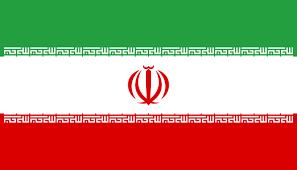
Article(s)
With 969 executions, 2015 turns out to be the deadliest year in Iran since 1990
By Marion Gauer, on 4 April 2016
This 8th annual report (released by Iran Human Rights and Ensemble contre la peine de mort) deals with the number of executions, the trend compared to previous years, the charges, the geographic distribution, as well as the monthly breakdown of the executions in Iran in 2015. These two organizations have been collaborating since 2011, in order to provide annual assessment and analysis of the death penalty trends in Iran. The 2015 report is the result of hard work from IHR members and supporters who took part in the documenting, analyzing and writing of its content.
2016
Iran (Islamic Republic of)
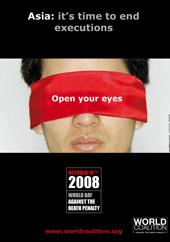
Article(s)
6th World Day Against the Death Penalty: open your eyes on Asia
By Aurélie Plaçais, on 4 August 2008
On 10 October 2008, World Day Against the Death Penalty, the World Coalition Against the Death Penalty calls on all citizens around the world to take action to end executions in Asia.
2008
Document(s)
Facts and Figures 2011
By World Coalition against the death penalty , on 10 October 2011
2011
Campaigning
Trend Towards Abolition
frMore details Download [ pdf - 100 Ko ]
Facts and Figures 2011
- Document type Campaigning
- Themes list Trend Towards Abolition
- Available languages Faits et chiffres 2011
Document(s)
UN Special Procedures toolkit – World Day 2023
By FIACAT and the World Coalition Against the Death Penalty, on 18 September 2023
2023
World Coalition
frMore details Download [ pdf - 345 Ko ]
There are several ways in which individuals and non-governmental organizations (NGOs) can work with the UN to report human rights violations. One way is through the special procedures of the UN Human Rights Council (HRC). Find out how to work with them here.
- Document type World Coalition
- Available languages Travailler avec les Procédures spéciales des Nations unies - Journée mondiale 2023
Document(s)
European Court for Human Rights cases involving the death penalty
By European Court for Human Rights Press Unit, on 24 June 2022
2022
International law - Regional body
Regional body report
Cruel, Inhuman and Degrading Treatment and Punishment
Death Row Conditions
Fair Trial
More details See the document
“[T]he [European Court of Human Rights] in Öcalan did not exclude that Article 2 [of the European Convention on Human Rights, protecting the right to life,] had already been amended so as to remove the exception permitting the death penalty. Moreover, … the position has evolved since then. All but two of the Member States have now signed Protocol No. 13 [to the Convention, concerning the abolishment of the death penalty in all circumstances,] and all but three of the States which have signed have ratified it. These figures, together with consistent State practice in observing the moratorium on capital punishment, are strongly indicative that Article 2 has been amended so as to prohibit the death penalty in all circumstances. Against this background, the Court does not consider that the wording of the second sentence of Article 2 § 1 continues to act as a bar to its interpreting the words ‘inhuman or degrading treatment or punishment’ in Article 3 [of the Convention, prohibiting torture and inhuman or degrading treatment,] as including the death penalty …” (Al-Saadoon and Mufdhi v. the United Kingdom judgment of 2 March 2010, § 120).
- Document type International law - Regional body / Regional body report
- Themes list Cruel, Inhuman and Degrading Treatment and Punishment / Death Row Conditions / Fair Trial
Document(s)
Death sentences and executions 2020
By Amnesty International , on 26 May 2021
2021
NGO report
aresfafrruMore details See the document
This report covers the judicial use of the death penalty for the period January to December 2020. As in previous years, information is collected from a variety of sources, including:
– official figures;
– judgements;
– information from individuals sentenced to death and their families and representatives;
– media reports;
– and, for a limited number of countries, other civil society organizations.
Amnesty International reports only on executions, death sentences and other aspects of the use of the death penalty, , such as commutations and exonerations, where there is reasonable confirmation. In many countries governments do not publish information on their use of the death penalty. In China and Viet Nam, data on the use of the death penalty is classified as a state secret. During 2020 little or no information was available on some countries – in particular Laos and North Korea (Democratic People’s Republic of Korea) – due to restrictive state practice.
- Document type NGO report
- Available languages أحكام وعمليات اإلعدام في2020CONDENAS A MUERTE Y EJECUCIONES 2020احکام مرگ و اعدامها۲۰۲۰سالCondamnations à mort et exécutions 2020ГЛОБАЛЬНЫЙ ДОКЛАД СМЕРТНЫЕ ПРИГОВОРЫ И КАЗНИ 2020
Document(s)
The war on drugs, forensic science and the death penalty in the Philippines
By Maria Corazon A.De Ungria and Jose M.Jose, on 10 August 2021
2021
Academic report
Drug Offenses
Philippines
More details See the document
The effectiveness of the death penalty to deter heinous crimes remains a contentious issue even though it has been abolished in many countries. Three years into President Rodrigo Duterte’s administration, the push to re-impose the death penalty is being taken seriously.
There is urgency in providing options to the drug problem other than killing drug suspects in the streets or sentencing them to death. The drug problem is a complex issue and exposes the human vulnerability of its users for criminal exploitation.
We propose here that addressing these vulnerabilities in a balanced and comprehensive manner through health-focused, rights-based criminal justice responses, conducting forensic science-based drug investigations and determining the social causes of drug abuse is an alternative solution that demands cooperation across different sectors of society as well as underscores the fundamental value of human life.
- Document type Academic report
- Countries list Philippines
- Themes list Drug Offenses
Document(s)
Legislative Expansion and Judicial Confusion: Uncertain Trajectories of the Death Penalty in India
By Anup Surendranath and Maulshree Pathak, on 1 September 2022
2022
Academic report
India
More details See the document
The numbers and the politics of the death penalty in India tell very different stories, presenting complicated narratives for its future. The public reaction to instances of sexual violence and other offences over the last decade and the consequent political response has significantly strengthened the retention and expansion of the death penalty. This is reflected from the fact that that of all the death sentences that district courts impose, only about 5 percent get confirmed in India’s appellate system. However, does this mean there is growing scepticism about the death penalty in the Supreme Court of India? Unfortunately, the answer is far from simple. An assessment of the death penalty in India’s appellate courts during the last decade will demonstrate that a crime-centric approach has hindered any principled discomfort with the death penalty or the manner of its administration. In particular, the Supreme Court has faltered in high-profile death sentence cases (i.e., offences against the state and sexual violence cases), and its track record of commutations has very little to do with principled considerations on sentencing. This paper argues that the political and judicial imagination of the death penalty, as a necessary part of the response to crime, creates significant and unique challenges for the path towards abolition.
This article was first published in Crime Justice Journal: https://www.crimejusticejournal.com/issue/view/119
- Document type Academic report
- Countries list India
Document(s)
‘Upholding the Cause of Civilization’: The Australian Death Penalty in War and Colonialism
By Mark Finnane, on 1 September 2022
Academic report
Australia
More details See the document
The abolition of the death penalty in Queensland in 1922 was the first in Australian jurisdictions, and the first in the British Empire. However, the legacy of the Queensland death penalty lingered in Australian colonial territories. This article considers a variety of practices in which the death penalty was addressed by Australian decision-makers during the first half of the 20th century. These include the exemption of Australian soldiers from execution in World War I, use of the death penalty in colonial Papua and the Mandate Territory of New Guinea, hanging as a weapon of war in the colonial territories, and the retrieval of the death penalty for the punishment of war crimes. In these histories, we see not only that the Queensland death penalty lived on in other contexts but also that ideological and political preferences for abolition remained vulnerable to the sway of other historical forces of war and security.
This article was first pubished in Crime Justice Journal: https://www.crimejusticejournal.com/issue/view/119
- Document type Academic report
- Countries list Australia
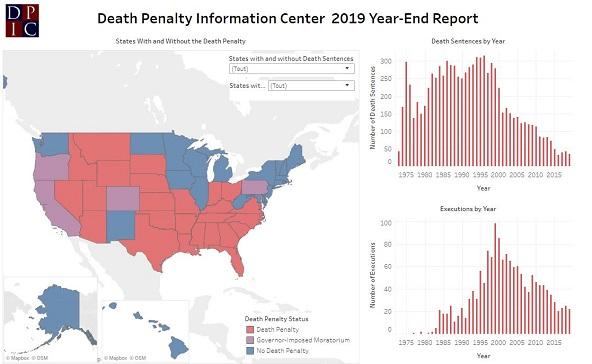
Article(s)
DPIC Report on the 2019 Death Penalty Usage in the US
By Dinda Royhan, on 20 December 2019
A year-end report by the Death Penalty Information Center highlights the continuing trend towards abolition with New Hampshire’s latest abolition, California’s moratorium, and the near-record low numbers of executions.
2019
United States

Member(s)
Association Justice et Miséricorde (AJEM)
on 30 April 2020
The Association Justice and Mercy (AJEM) is a Lebanese nonprofit, nonpolitical and nonsectarian nongovernmental organization (NGO) created in 1996 at the initiative of a group of social workers. AJEM deals mainly with the right of prisoners in Lebanon, and more generally with human rights, the fight against torture and other cruel, inhuman and degrading treatment, […]
2020
Lebanon

Article(s)
Death Penalty Information Center’s Annual Summary
By Dunia Schaffa, on 27 February 2023
According to the Death Penalty Information Center (DPIC) annual review, 2022 has been the eighth consecutive year with less than 30 people executed and less than 50 people sentenced to death during the year in the United States of America.
2023
United States
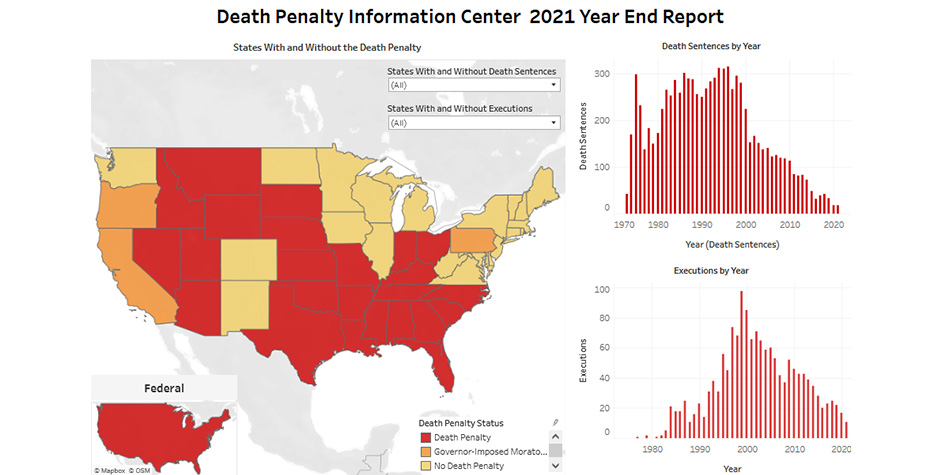
Article(s)
Executions and Death Sentences Near Record Lows in 2021 in the USA
By Death Penalty Information Center, on 13 January 2022
Virginia’s historic abolition of the death penalty highlighted a year in which public opinion polls, executions, and new death sentences all signaled continued erosion of support for capital punishment across the United States.
2022
Public Opinion
United States

Article(s)
China: Judicial guidelines to curtail activism for Taiwan a further blow for human rights protections
By Amnesty International, Anti-Death Penalty Asia Network, Capital Punishment Justice Project, the Rights Practice and the World Coalition Against the Death Penalty, on 1 August 2024
Taken from the declaration posted on Amnesty International’s web page found here. “Amnesty International and four other organizations are alarmed by the recent publication by the Chinese authorities of new judicial guidelines providing directives to prosecute and harshly punish, including by the death penalty, those advocating and acting for Taiwan’s independence. The guidance effectively encourages […]
2024
China

21st World Day Against the Death Penalty – The death penalty: An irreversible torture
on 12 June 2023
2023
Cruel, Inhuman and Degrading Treatment and Punishment
Death Row Conditions

22nd World Day Against the Death Penalty – The death penalty protects no one.
on 12 June 2024
Observed every 10 October, the World Day Against the Death Penalty unifies the global abolitionist movement and mobilizes civil society, political leaders, lawyers, public opinion and more to support the call for the universal abolition of capital punishment.
2024
Public Opinion
Trend Towards Abolition
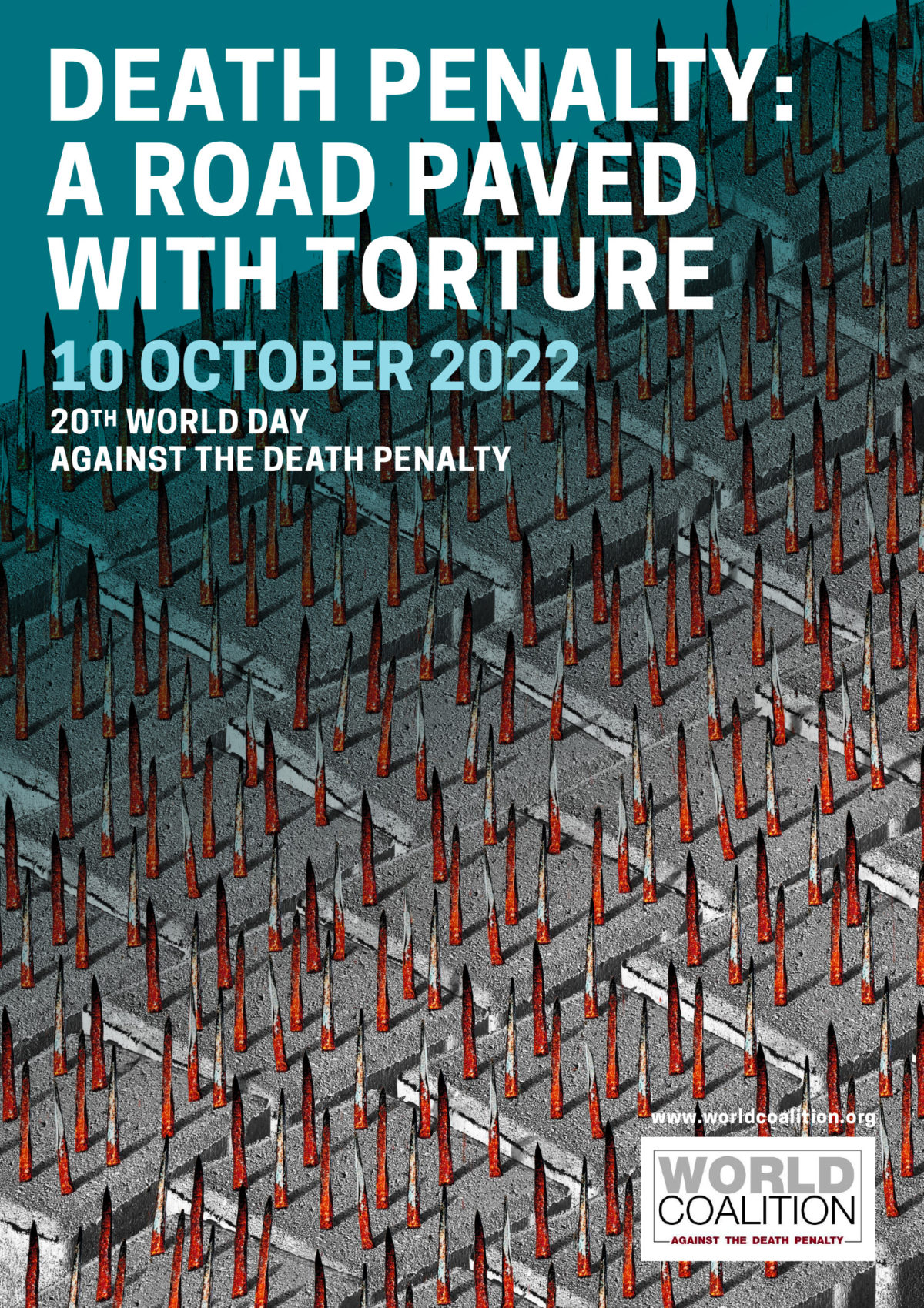
20th World Day Against the Death Penalty – Death penalty: a road paved with torture
on 10 June 2022
As the 20th World Day Against the Death Penalty is marked around the world, now is a time to consider and celebrate the gains the abolitionist movement has made over the past 20 years. Now, more than ever, abolitionist actors need to continue working towards the complete abolition of the death penalty worldwide, for all […]
2022
Cruel, Inhuman and Degrading Treatment and Punishment
Death Row Conditions
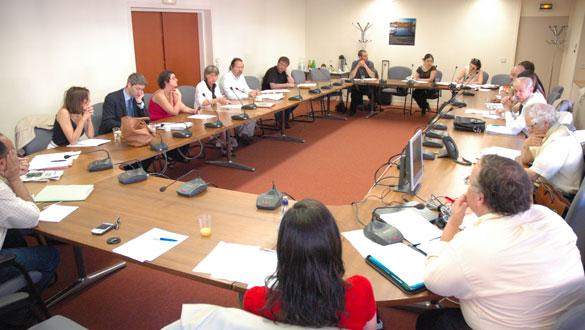
Article(s)
Statutes of the World Coalition Against the Death Penalty
on 26 June 2011
Amended by the General Assembly on June 26, 2011
2011
Article(s)
ADPAN: tearing down Asia’s death penalty veil of secrecy in 2008
on 3 February 2008
The majority of executions take place in Asia. But this is also the continent where campaigners have developed a fantastic regional abolitionist network, one that reaches across borders, languages and religions.
2008
China
Drug Offenses
Fair Trial
Japan
Mental Illness
Mongolia
Murder Victims' Families
Public Opinion
Republic of Korea
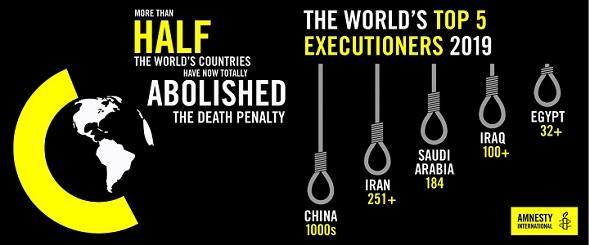
Article(s)
Death penalty in 2019: Facts and figures
By Amnesty International, on 22 April 2020
Amnesty International published its annual report on death sentences and executions worldwide on 21 April 2020. It showed that the number of known executions decreased slightly on the 2018 total, reaching the lowest figure in more than 10 years, despite Iraq nearly doubling its tally and Saudi Arabia having its highest executions total in any given year.
2020
Document(s)
International Law and the Death Penalty Guide
By The Death Penalty Project, on 1 November 2022
2022
NGO report
More details See the document
The use of capital punishment has been an issue addressed by international human rights law since the earliest days of the United Nations. The Universal Declaration of Human Rights, adopted by the General Assembly in 1948, and an instrument widely recognised as the gold standard for human rights, affirms the right to life and the prohibition of torture and cruel, inhuman or degrading treatment or punishment. The Death Penalty Project produced this resource on international law and the death penalty.
- Document type NGO report
Document(s)
Investigating Attitudes to the Death Penalty in Indonesia, Part Two – Public Opinion: No Barrier to Abolition
By Carolyn Hoyle - The Death Penalty Project, in partnership with LBH Masyarakat and the University of Indonesia, on 28 June 2021
2021
NGO report
Drug Offenses
Indonesia
Public Opinion
More details See the document
In 2019-20, The Death Penalty Project, in partnership with LBH Masyarakat and the University of Indonesia, commissioned Professor Carolyn Hoyle, of The Death Penalty Research Unit at the University of Oxford to conduct research investigating attitudes towards the death penalty in Indonesia. The findings have been presented in a two-part report; the first details the findings of a nuanced public survey and the second details the findings of interviews conducted with opinion formers. The public opinion research was undertaken by surveying a stratified random sample of 1,515 respondents – a sample large enough to make inferences from the data about the views of the overall population.
- Document type NGO report
- Countries list Indonesia
- Themes list Drug Offenses / Public Opinion
Document(s)
Swahili – Ripoti ya kimataifa ya amnesty international: hukumu za kifo na watu walioadhibiwa kifo 2023
on 29 May 2024
2024
NGO report
Trend Towards Abolition
More details Download [ pdf - 1806 Ko ]
Ufuatiliaji wa Amnesty International wa matumizi ya adhabu ya kifo duniani ulibaini watu
1,153 wanaofahamika kuwa walinyongwa mwaka 2023, ambalo ni ongezeko la asilimia
31 kutoka 883 mwaka 2022. Hata hivyo nchi zinazowanyonga watu zilipungua kwa
kiwango kikubwa kutoka 20 mwaka 2022 hadi 16 mwaka 2023
- Document type NGO report
- Themes list Trend Towards Abolition
Document(s)
Dealing with Punishment: Risks and Rewards in Indonesia’s Illicit Drug Trade
By Carolyn Hoyle, Death Penalty Project, on 18 April 2023
2023
NGO report
Drug Offenses
Indonesia
More details See the document
In 2020-2021, The Death Penalty Project, in partnership with Community Legal Aid Institute, LBH Masyarakat, commissioned The Death Penalty Research Unit (DPRU) at the University of Oxford, in association with University Centre of Excellence HIV/AIDS Research Centre-HPSI at Atma Jaya Catholic University of Indonesia (AJCU), to conduct the research building empirical knowledge on who is being convicted for drug offences and uncover the factors that have influenced their motivations and decision making. Interviews were conducted on 57 prisoners from a prison in Jakrata, Indonesia, all convicted for drug offences. This is the first stage of a larger mapping project, which will interview those convicted of drug offences and sentenced to death or life in prisons across Indonesia and Southeast Asia. It also compliments our two part opinion study on attitudes on capital punishment in Indonesia.
- Document type NGO report
- Countries list Indonesia
- Themes list Drug Offenses

Article(s)
Documenting Human Rights Violations in North Korea
By Hédia Zaalouni, on 16 January 2020
The Transitional Justice Working Group (TJWG) released a report in June 2019 entitled “Mapping the Fate of the Dead (Killings and Burials in North Korea)”.
2020
Democratic People's Republic of Korea
Article(s)
US activists turn spotlight on executed innocent man
on 28 September 2009
An official report and a feature in the New Yorker have confirmed that Todd Willingham was not guilty of the arson for which he was executed. Abolitionist campaigners are now targeting his case.
2009
Innocence
United States
Document(s)
Briefing Paper on the death penalty in Middle East & North Africa
By Penal Reform International, on 8 September 2020
2020
Academic report
More details See the document
NGO coalition report submitted to the Office of the United Nations High Commissioner on Human Rights
- Document type Academic report
Document(s)
Moving away from the death penalty
By Office of the High Commissioner for Human Rights (OHCHR) , on 1 January 2015
2015
International law - United Nations
More details See the document
The present publication provides an extensive review of global trends in death penalty matters, a summary of the applicable international legal standards, and the current status of legislative reform related to the death penalty in South-East Asia. As a product of the OHCHR Regional Office for South-East Asia, this publication is intended to be a resource for further discussions in the region toward the abolition of the death penalty.
- Document type International law - United Nations
- Themes list Trend Towards Abolition,
Document(s)
Pathways to abolition
By Death Penalty Worldwide / Cornell Law School, on 1 January 2016
2016
Academic report
More details See the document
This report documents the processes by which 14 jurisdictions abolished the death penalty in law. The conclusions attempt to identify patterns and draw conclusions in the hope that they will provide ideas, insights and inspiration to countries that either already are on their path to abolition or yet have to embark on it.
- Document type Academic report
- Themes list Trend Towards Abolition, Country/Regional profiles,
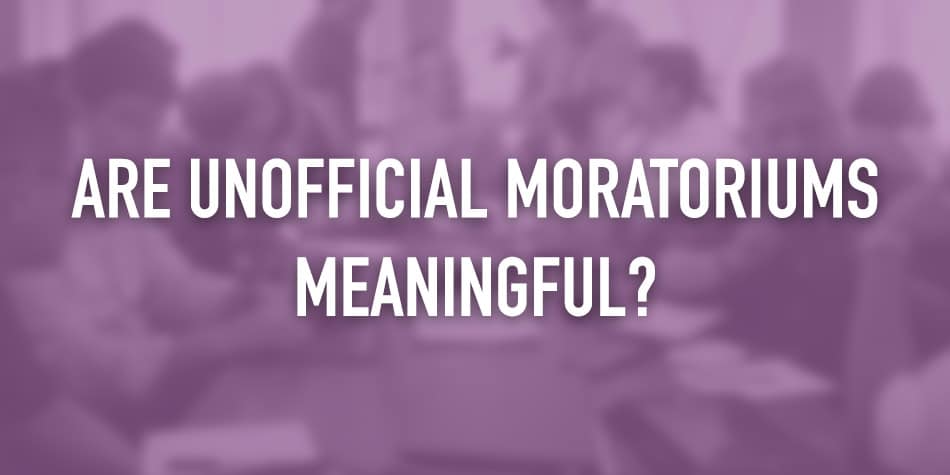
Article(s)
Importance of understanding phases of abolition: the danger of ‘abolitionist in practice’
By Venus Aves, Bronwyn Dudley, and Shahindha Ismail, on 6 November 2023
In July 2023, the World Coalition hosted a seminar in Malaysia in the context of its “Countries at Risk” project. This subject of informal moratoriums solicited much interest as participants considered preventative strategies for stopping a return to the death penalty, and what environmental factors need to be considered to implement those strategies. This article […]
2023
Moratorium
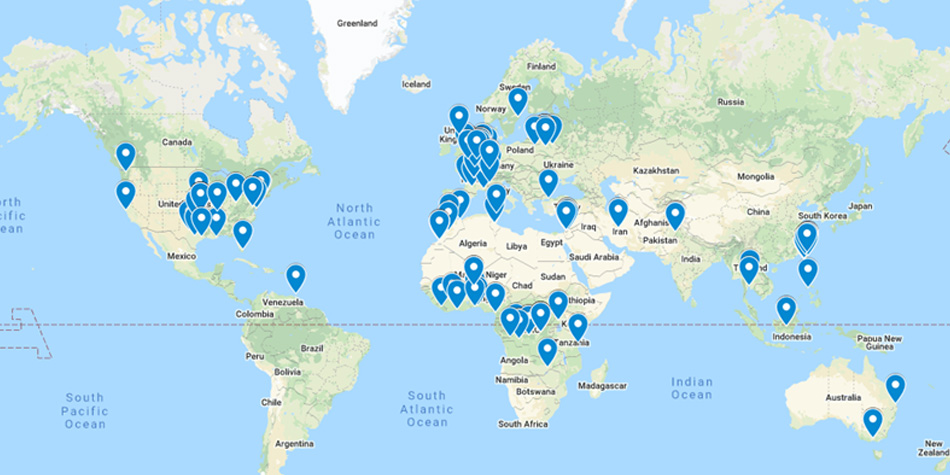
Article(s)
Take Action for World Day 2022!
By World coalition against the death penalty, on 9 September 2022
Take action now! The 20th World Day Against the Death Penalty is an excellent opportunity to publicly oppose the use of this inhumane punishment and to support those who are fighting for its abolition all over the world. > Spread the word on Facebook, Twitter and Instagram: #nodeathpenalty > Find out more about the World […]
2022
Cruel, Inhuman and Degrading Treatment and Punishment

Article(s)
Take Action for World Day 2021!
By World Coalition Against the Death Penalty, on 10 September 2021
Take action now! The 19th World Day Against the Death Penalty is an excellent opportunity to publicly oppose the use of this inhumane punishment and to support those who are fighting for its abolition all over the world.
2021
Drug Offenses
Fair Trial
Women
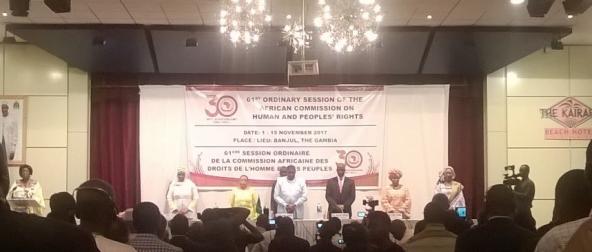
Article(s)
« A new Gambia » welcomes the 61st session of the ACHPR
By FIACAT and World Coalition against the Death Penalty, on 21 November 2017
From November 1st to November 15, 2017, the 61st session of the African Commission on Human and Peoples’ Rights, as well as the NGO Forum, took place in Banjul, Gambia. During the opening session, the President of The Gambia, Adama Barrow, confirmed the “New Gambia’s commitment” to human rights.
2017
Gambia

